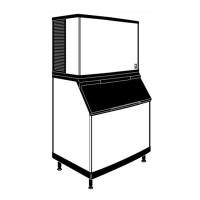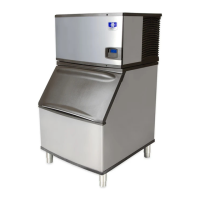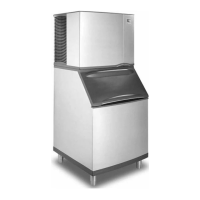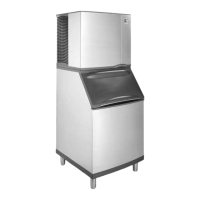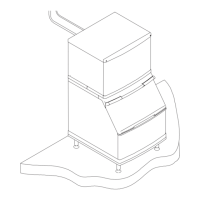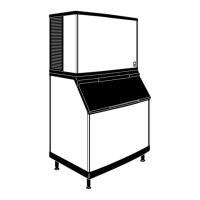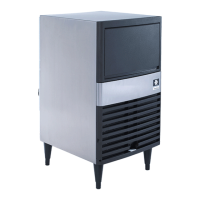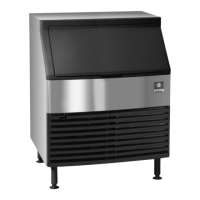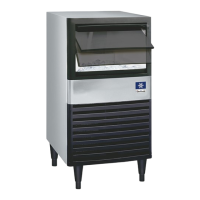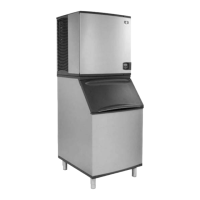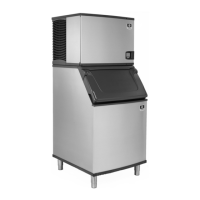Section 7 Refrigeration System
7-9
BEFORE BEGINNING SERVICE
Ice machines may experience operational problems
only during certain times of the day or night. A
machine may function properly while it is being
serviced, but malfunctions later. Information
provided by the user can help the technician start in
the right direction, and may be a determining factor in
the final diagnosis.
Ask these questions before beginning service:
• When does the ice machine malfunction? (night,
day, all the time, only during the freeze cycle,
etc.)
• When do you notice low ice production? (one day
a week, every day, on weekends, etc.)
• Can you describe exactly what the ice machine
seems to be doing?
• Has anyone been working on the ice machine?
• Is anything (such as boxes) usually stored near or
on the ice machine which could obstruct airflow
around the machine?
• During “store shutdown,” is the circuit breaker,
water supply or air temperature altered?
• Is there any reason why incoming water pressure
might rise or drop substantially?
ICE PRODUCTION CHECK
The amount of ice a machine produces directly relates
to the operating water and air temperatures. This
means an ice machine in a 70°F (21.2°C) room with
50°F (10.0°C) water produces more ice than the same
model ice machine in a 90°F (32.2°C) room with
70°F (21.2°C) water.
1. Determine the ice machine operating conditions:
Air temp. entering condenser: ____°
Air temp. around ice machine: ____°
Water temp. entering float valve: ____°
2. Refer to the appropriate 24 Hour Ice Production
Chart. (These charts begin on page 7-31.) Use the
operating conditions determined in Step 1 to find
the published 24 ice production: ______
3. Perform an actual ice production check. Use the
formula below.
1. __________ + __________ = __________
Freeze Time Harvest Time Total Cycle Time
2. 1440 ÷
÷÷
÷ __________ = __________
Minutes in 24 Hours Total Cycle Time Cycles Per Day
3. __________ x __________ = __________
Weight of One Harvest Cycles Per Day Actual 24 Hour Ice Production
Important
• Times are in minutes.
Example: 1 min., 15 sec. converts to 1.25 min.
(15 seconds ÷ 60 seconds = .25 minutes)
• Weights are in pounds.
Example: 2 lb., 6 oz. converts to 2.375 lb.
(6 oz. ÷16 oz. = .375 lb.)
• Weighing the ice is the only 100% accurate
check. However, if the ice pattern is normal and
the 1/8” thickness is maintained, the ice slab
weights listed with the 24 Hour Ice Production
Charts may be used.
4. Compare the results of Step 3 with Step 2. Ice
production is normal when these numbers match
closely. If they do not match closely, determine if:
• another ice machine is required.
• more storage capacity is required.
• relocating the existing equipment to lower the
load conditions is required.
Contact the local Manitowoc distributor for
information on available options and accessories.
